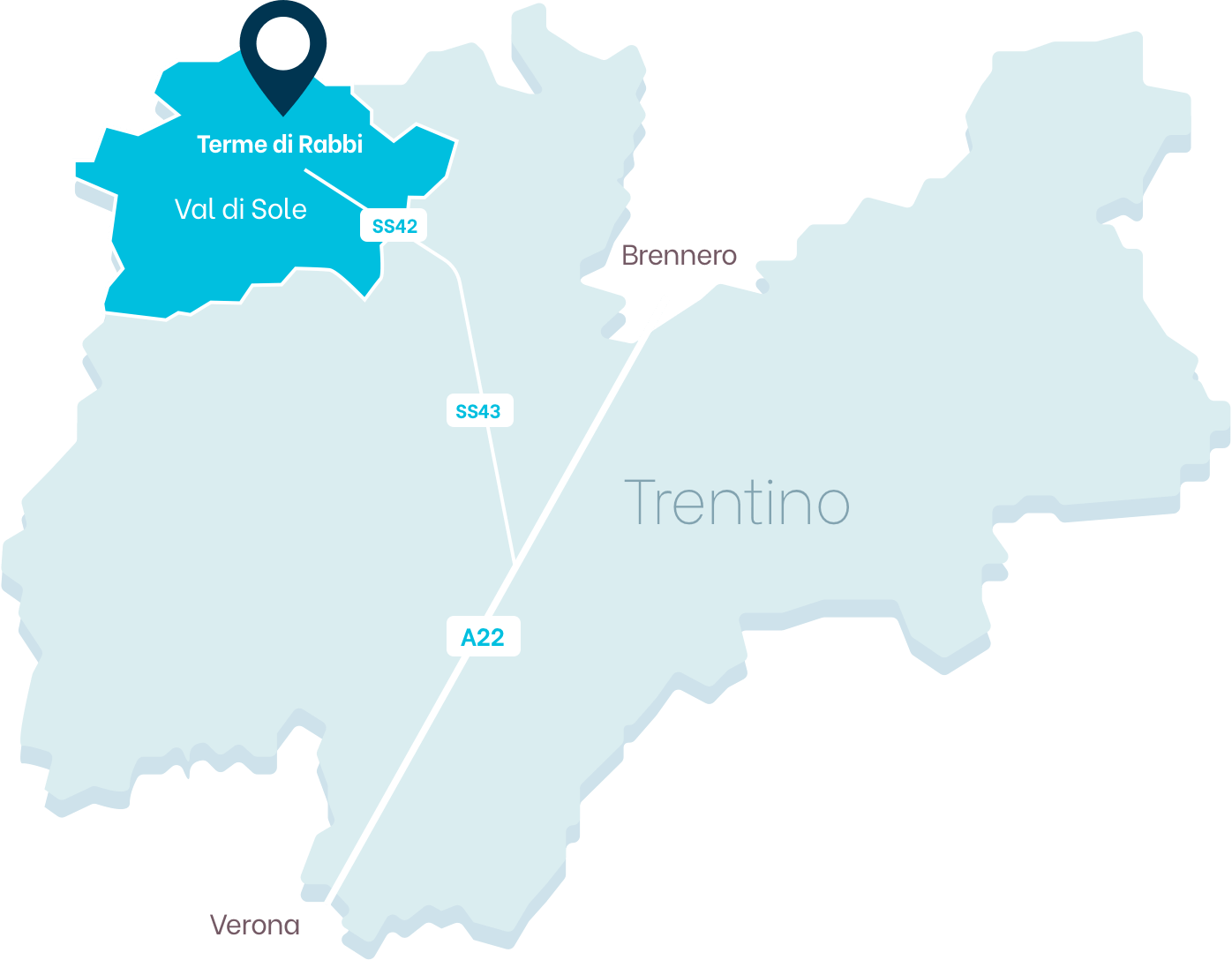History of the Terme di Rabbi
The thermal springs of Rabbi enter documented history as ferruginous acidulous waters: naturally effervescent waters, rich in carbon dioxide and iron. Their discovery and therapeutic use do not stem from a single episode, but from a gradual process, observed, tested, and passed down over time.
17th century — The first therapeutic attestations
1660 — “To drink the salty water”
One of the earliest testimonies is linked to the Thun family. In a letter dated 1660, Sigismondo Ercole Thun notes his intention to travel to Rabbi “to drink the salty water, as advised by my physician.”
It is a brief yet decisive passage: the water is sought for therapeutic purposes, on medical advice, attesting to its use already in the early modern period.
18th century — From practice to science
1777 — Scientific recognition
In 1777, the physician and naturalist Johann Heinrich Nepomuk von Crantz includes Rabbi in his repertory of curative springs of the Habsburg Monarchy, dedicated to Empress Maria Theresa of Austria.
The water is classified as ferruginous acidulous and compared with the leading European spa resorts, marking the scientific recognition of Rabbi’s springs.
1795 — “A glorious visit”
In 1795, Archduchess Maria Elisabeth of Austria, Abbess of the Imperial Royal Chapter of Ladies in Innsbruck, stayed with the Dal Lago family in Cles and visit 'our valleys'.
The historian Jacopo Antonio de Maffei writes, "Our Valleys were honored with a glorious visit [...]. Archduchess Maria Elisabeth of Austria, Abbess of the Imperial Royal Chapter of Ladies of Innsbruck, decided to see them. She therefore left her residence at the end of August 1795, accompanied by her steward, Count Leopold of Spaur, and with a respectable retinue, she arrived in the village of Cles at six o'clock in the evening on September 1st, staying at the home of Mr. Lorenzo dal Lago. A large gathering of people from all walks of life was there, unusual in these Valleys, and efforts were made to provide her with all the entertainment the town afforded. And the Archduchess, after a few days' stay, leaving behind several gifts, and all satisfied with her obliging manners, on the 10th of the same month at four o'clock in the morning resumed her journey back to Innsbruck."
19th century — Scholars and travellers
During the nineteenth century, the Terme di Rabbi became a destination for scholars and travellers. Antonio Stoppani, in Il Bel Paese (1876), describes the Bagni di Rabbi as a place of personal relief and benefit.
A few years earlier, the mountaineer and explorer Douglas William Freshfield included the Val di Rabbi among the Alpine locations known to Europe’s educated public.
20th century — Modern analysis and thermal imagery
1912–1913 — Modern analysis
At the beginning of the twentieth century, Josef Zehenter published a detailed analysis of the Antica Fonte of Rabbi, describing its composition and characteristics using scientific methods.
This marks the transition from medical-empirical tradition to modern scientific balneology.
Oral tradition — The legend of Bastianèl dei Micli
Alongside documented history, the valley preserves the legend of Bastianèl, a young shepherd from the Micli family who is said to have sensed the virtues of the water by observing the improved health of his sheep.
It is an oral tradition, not attested by contemporary sources, yet deeply rooted in the identity of the place.
A history that continues
Today, the Terme di Rabbi continue this long history, integrating historical and scientific knowledge with a contemporary vision of well-being, in respect for nature, water, and Alpine thermal culture.
Bibliography and sources
Archivio di Stato di Trento – Fondo Thun
Jacopo Antonio Maffei, Periodi istorici e topografia delle valli di Non e di Sole (1805)
J. H. N. von Crantz, Gesundbrunnen der Oesterreichischen Monarchie (1777)
Josef Zehenter, Analyse des alkalischen Eisensäuerlings “Antica Fönte” in Rabbi (1912–1913)
General Catalogue of Cultural Heritage — Historical posters
Antonio Stoppani, Il Bel Paese (1876)
